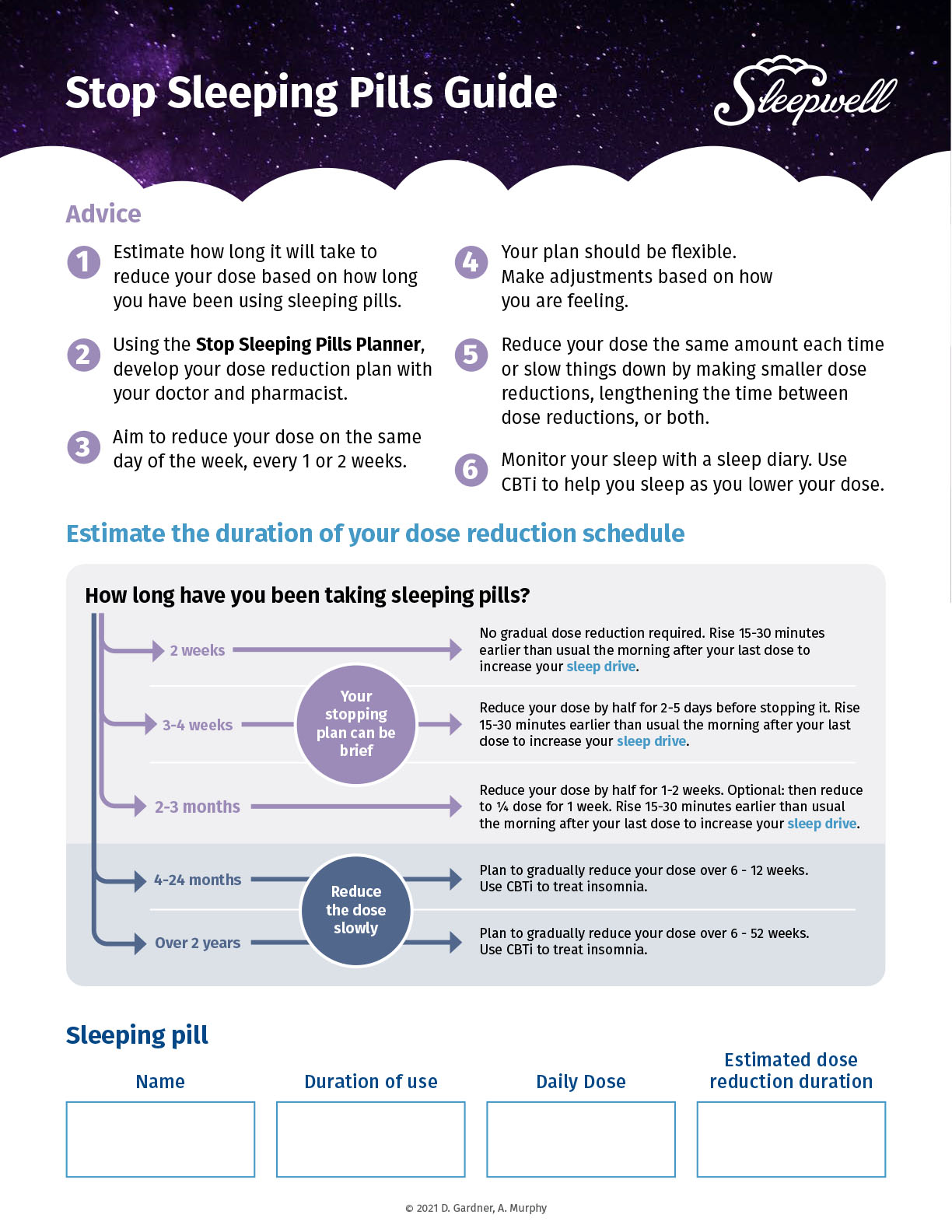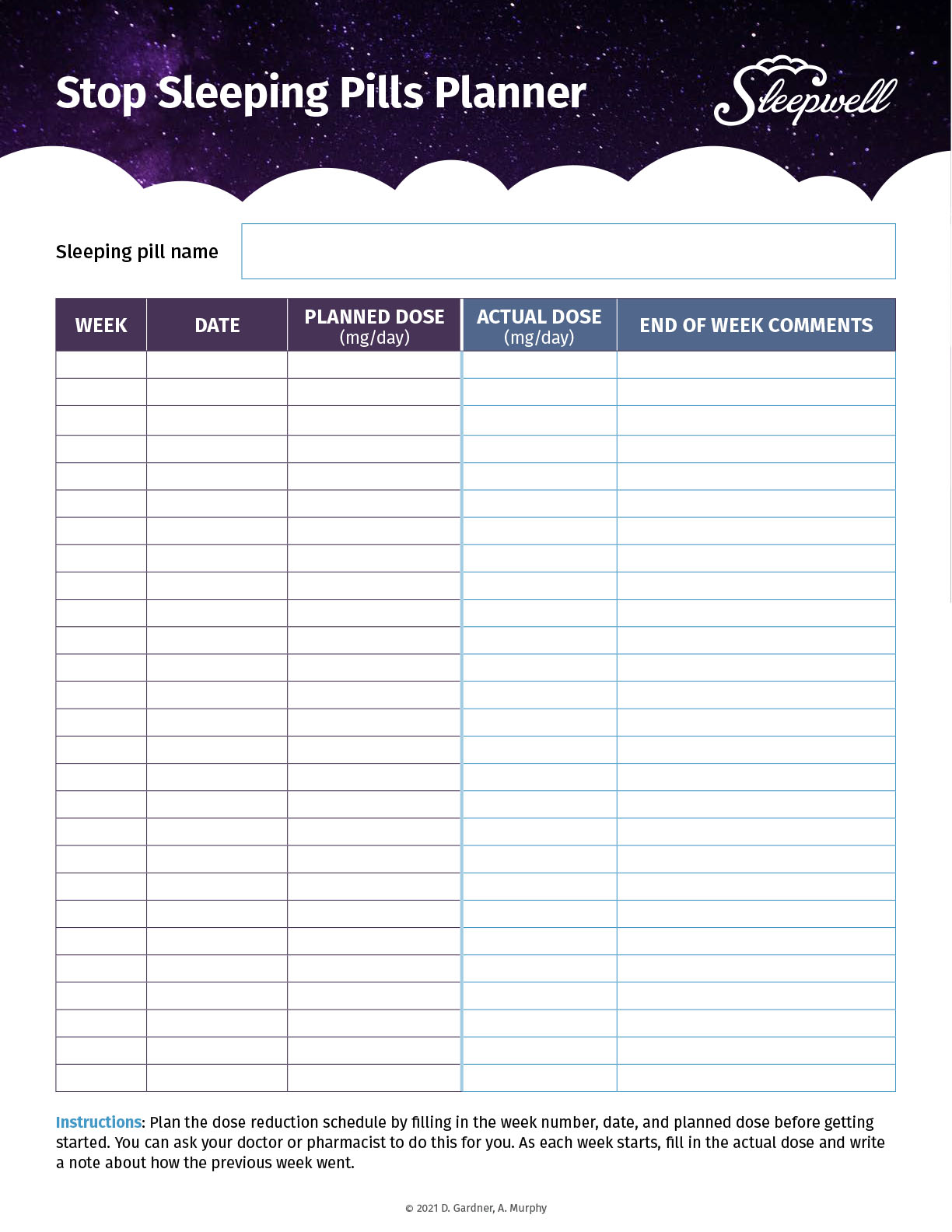How Long
How long it takes to reduce and stop sleeping pills varies a lot, from a few days to over a year, depending on how long you have been taking sleeping pills and how sensitive you are to the withdrawal syndrome.
Use our Stopping Guidance tool to find out how long to taper down your sleeping pill dose by selecting how long you have been taking sleeping pills. Keep in mind some people can stop faster than is shown here while others need to go more slowly.
Insomnia is part of the sleeping pill withdrawal syndrome. If you have taken a sleeping pill for 4 weeks or less, this can be managed by increasing your sleep drive. Get out of bed 15-30 minutes earlier than usual on the morning after you have taken your last sleeping pill. If you have taken sleeping pills longer, you should use various CBTi strategies to get your sleep back and to help avoid withdrawal insomnia.
Faye’s Story
After 40 years of nightly sleeping pill use, Faye decided to make a change. In this video, Faye shares her experiences working through a gradual dose reduction plan and introducing new healthy sleep behaviours that dramatically improved her sleep as well as helped her mood, energy levels, and focus.
How long have you used sleeping pills for?
Select the duration that matches with your use for advice on how to reduce your sleeping pill dose.


 Option 1: Stairs
Option 1: Stairs Option 2: Slow slide
Option 2: Slow slide
